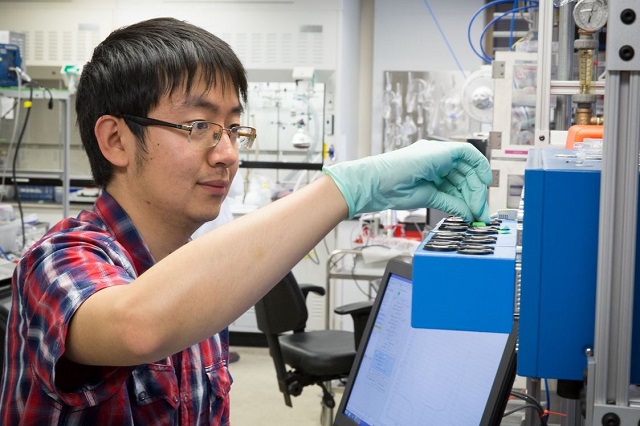 Stanford University graduate student Yiyang Li. Image Credit: SLAC National Accelerator Laboratory
Stanford University graduate student Yiyang Li. Image Credit: SLAC National Accelerator Laboratory
Researchers from the Stanford Institute for Materials & Energy Sciences and the SLAC National Accelerator Laboratory are challenging the prevailing view that the rapid charging and draining of lithium ion batteries is damaging and have discovered a new way to think about battery degradation.
The researchers studied the behaviour of nanoparticles in electrode of lithium ion batteries. In this study, a positive electrode composed of lithium iron phosphate nanoparticles was analysed. If all of the nanoparticles, or at least most of them, took part in the charging and discharging process then the absorption of ions would take place more uniformly and smoothly. However, when only some of the particles absorb all the ions, the performance of the battery is affected.
Battery Particle Simulation
The researchers created small coin cell batteries and charged them with varying current levels for a variety of time durations. After the charging and discharging process had finished, the electrode was sliced and examined at DOE’s Advanced Light Source synchrotron facility at Berkeley Lab.
We were able to look at thousands of electrode nanoparticles at a time and get snapshots of them at different stages during charging and discharging.
Yiyang Li – a Stanford graduate student and lead author of the study.
The researchers found that during normal charging and rapid charging, ions were absorbed and released by only a small amount of nanoparticles. However during discharge, when the rate of discharge increased above a certain level, more nanoparticles simultaneously absorbed the ions in a uniform manner which caused less damage.
This study suggests that the manner of charging batteries or the modification of electrodes could lead to improvements in the charging and discharging of batteries and may also help extend their life. This study has been published in Nature Materials.